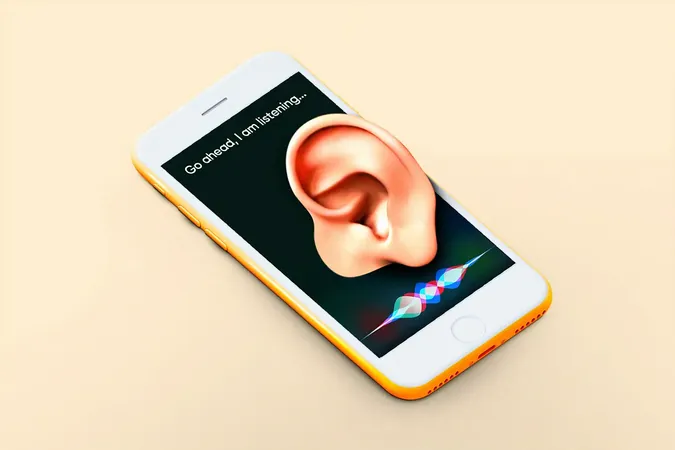
Shocking Revelation: Are Your Phones Spying on You? Active Listening Feature Sparks Privacy Outrage!
2024-10-01
Shocking Revelation: Are Your Phones Spying on You?
In a jaw-dropping exposé, a leaked presentation from the marketing company Cox Media Group (CMG) suggests that smartphones might be eavesdropping on your conversations—yes, you read that right! Have you ever chatted about a product with a friend, only to find ads for that exact item appearing on your phone moments later? What felt like a bizarre coincidence might actually be something far more concerning.
The presentation showcased CMG's controversial "Active Listening" feature, which, according to recent reports from 404Media, indicates that your device's microphone may continuously capture and process audio data in real-time, way beyond just utilizing your browsing history. This technology hypothetically allows companies to tap into your private discussions to gather insights on consumer behavior and preferences—transforming seemingly casual conversations into advertising Gold mines.
What Exactly is Active Listening?
Active Listening goes beyond passive audio collection; it's a mechanism that enables smartphones to record live sound, including intimate chats with family and friends. The pitch deck presented by CMG boldly stated that this audio analysis could allow advertisers to hyper-target ads, giving them an uncanny ability to predict user needs—potentially making users feel as though companies are reading their minds.
CMG went a step further, asserting that "our phones are listening to us" is not a conspiracy theory, and they consider it legal to collect such sensitive data without explicitly informing users about its usage. They claimed to hold an "unprecedented understanding" of consumer behavior, suggesting that they could create advertisements so personalized that it could provoke thoughts like, “Wow, they must be a mind reader.”
Backlash and Rising Privacy Concerns
Naturally, these disclosures have ignited a firestorm of privacy concerns. Critics argue that using device microphones without clear consent breaches fundamental user rights. Major tech companies like Meta (Facebook), Google, and Amazon are reassessing their relationships with CMG, with Google already severing ties and Meta placing CMG under review. Amazon has outright denied any current partnership with CMG.
Historically, these tech giants have maintained that devices only respond to specific wake words—like "Hey Siri," "Okay Google," or "Alexa"—and are not listening otherwise. In a notable 2008 testimony before Congress, Meta's CEO Mark Zuckerberg dismissed accusations that they eavesdrop for ad purposes as mere conspiracy theories.
Regulations on the Horizon?
The implications of CMG's revelations are staggering and have propelled discussions surrounding data privacy into overdrive. Previous assumptions that the targeted ads we encounter result from sophisticated algorithms are now being called into question. As regulators analyze these developments, calls for stricter data privacy laws are gaining momentum, emphasizing the need for companies to establish better safeguards to protect user data.
For concerned users, the best immediate course of action is to review and disable microphone access for any apps that emanate distrust.
Conclusion: The Line Between Innovation and Privacy
CMG's bold and controversial stance raises essential questions about the ethical landscape of technology today. While tailored ads represent the cutting edge of marketing, the commitment to transparency and user trust will undeniably dictate the future success of these companies. As the dust settles, we are left pondering: how much of our private lives are we willing to trade for convenience?
In a world where your phone might just be the most intrusive member of your household, will you be watching what you say?


 Brasil (PT)
Brasil (PT)
 Canada (EN)
Canada (EN)
 Chile (ES)
Chile (ES)
 España (ES)
España (ES)
 France (FR)
France (FR)
 Hong Kong (EN)
Hong Kong (EN)
 Italia (IT)
Italia (IT)
 日本 (JA)
日本 (JA)
 Magyarország (HU)
Magyarország (HU)
 Norge (NO)
Norge (NO)
 Polska (PL)
Polska (PL)
 Schweiz (DE)
Schweiz (DE)
 Singapore (EN)
Singapore (EN)
 Sverige (SV)
Sverige (SV)
 Suomi (FI)
Suomi (FI)
 Türkiye (TR)
Türkiye (TR)